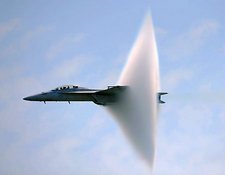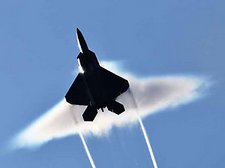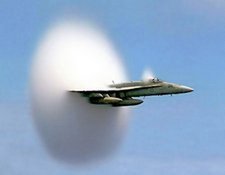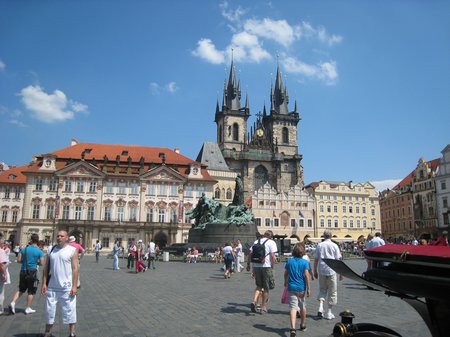Breaking the Sound Barrier
 Many believe the sound barrier is similar to an invisible wall in the sky, but it is really invisible? When a plane gets close to the speed of sound, a unique visual phenomenon occurs.
Many believe the sound barrier is similar to an invisible wall in the sky, but it is really invisible? When a plane gets close to the speed of sound, a unique visual phenomenon occurs.
Check out these new pictures released by the US Military showing an Air Force F-22 Raptor during a supersonic flyby.
A spectacular spray of vapor often accompanies the breaking of the sound barrier. It has also been witnessed during space shuttle launches and nuclear expl osions.
osions.
Experts say there is no visual sound barrier, but why does this stunning cloud occur? It’s called a vapor cone or a shock collar, and, if you’re a scientist, you probably call it a Prandtl–Glauert singularity.
According to Live Science, “the visual phenomenon is caused by a layer of water droplets trapped between two high-pressure surfaces of air. In humid conditions, condensation can gather in the trough between two crests of the sound waves produced by the jet.”

The effect doesn’t always occur with the breaking of the sound barrier, but it often does. Even if this cloud isn’t the physical representation of the sound barrier being broken, it’s still pretty cool.
Plus, it gives you a great idea of what it might look like if a wall of sound actually existed in the sky for us to pass through.











